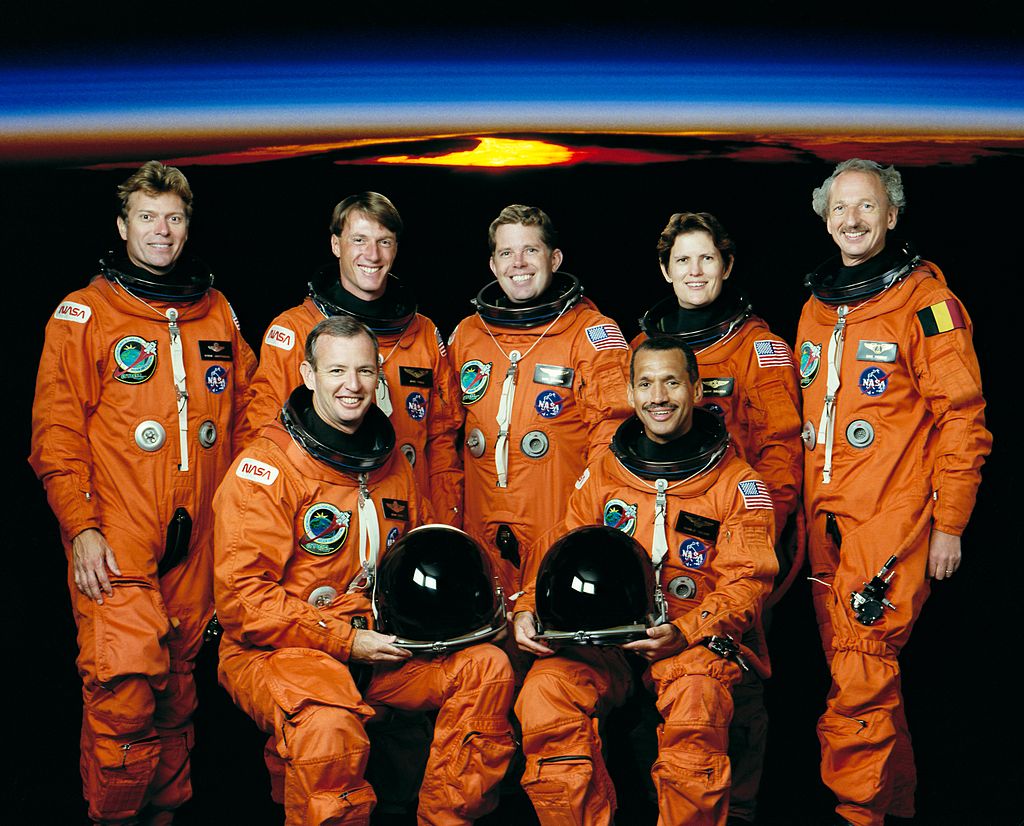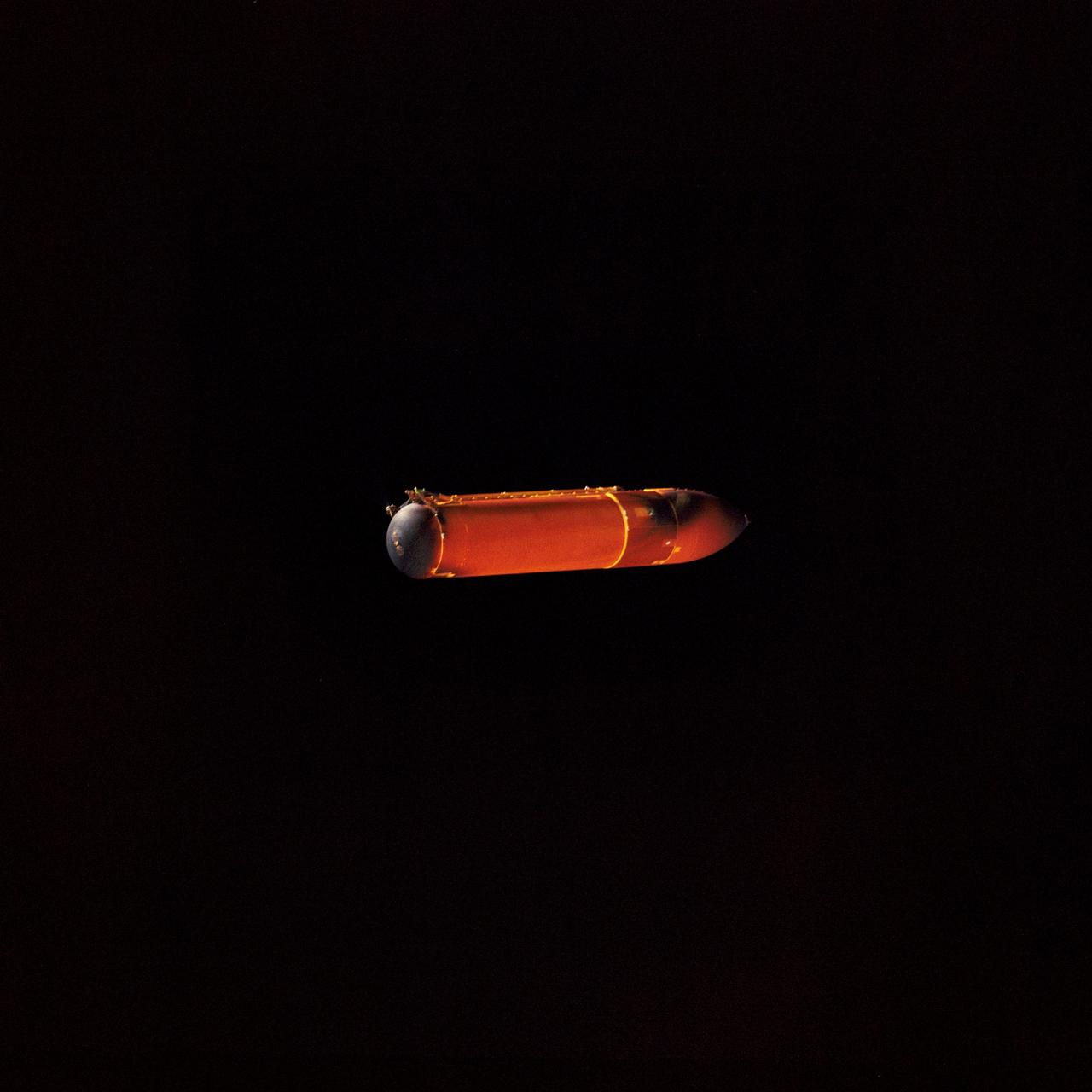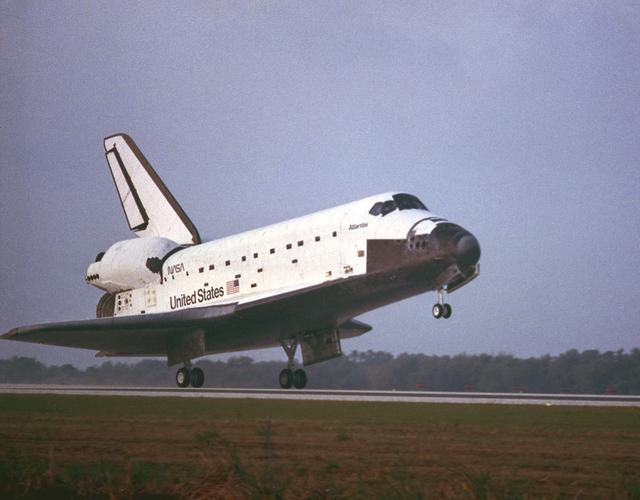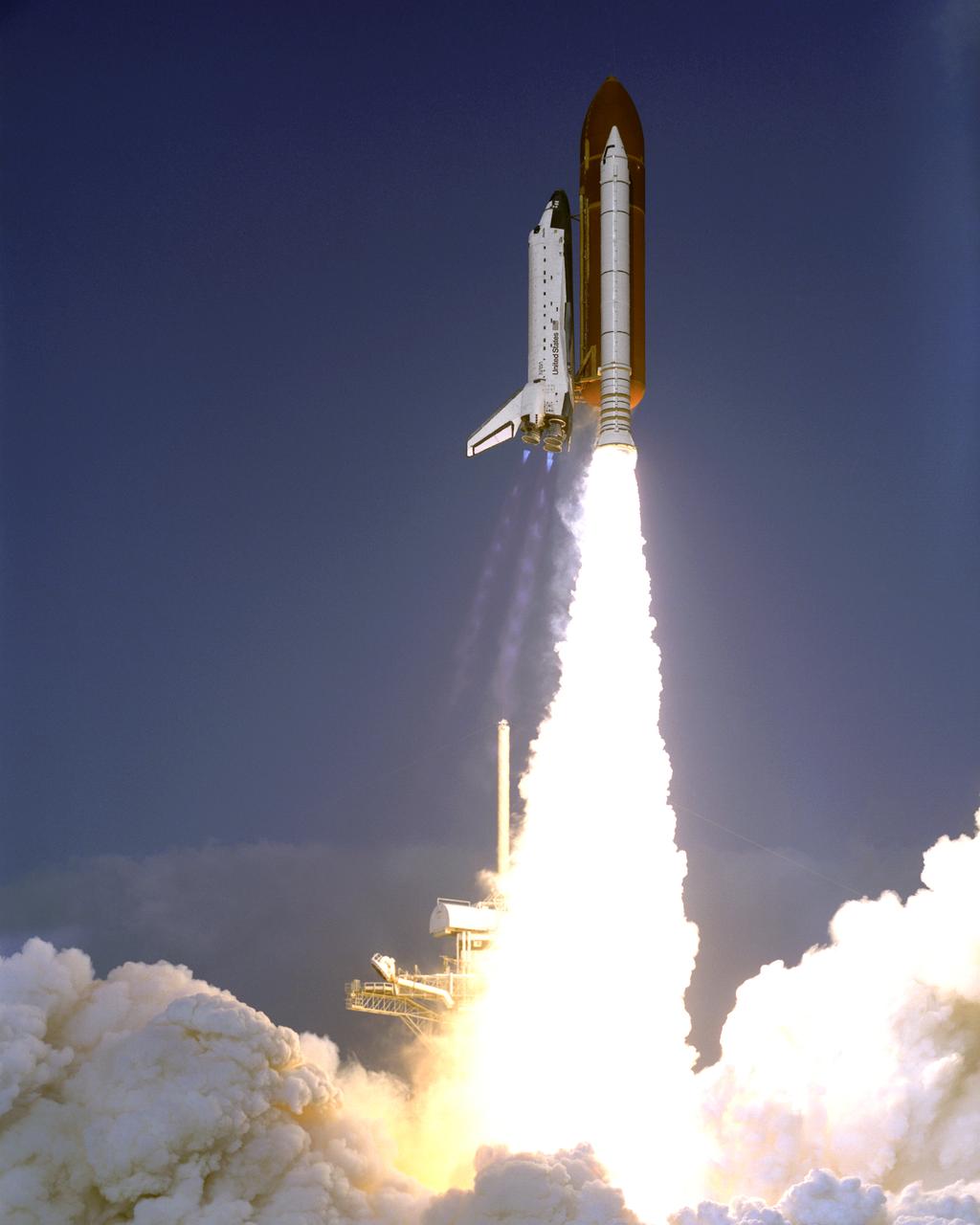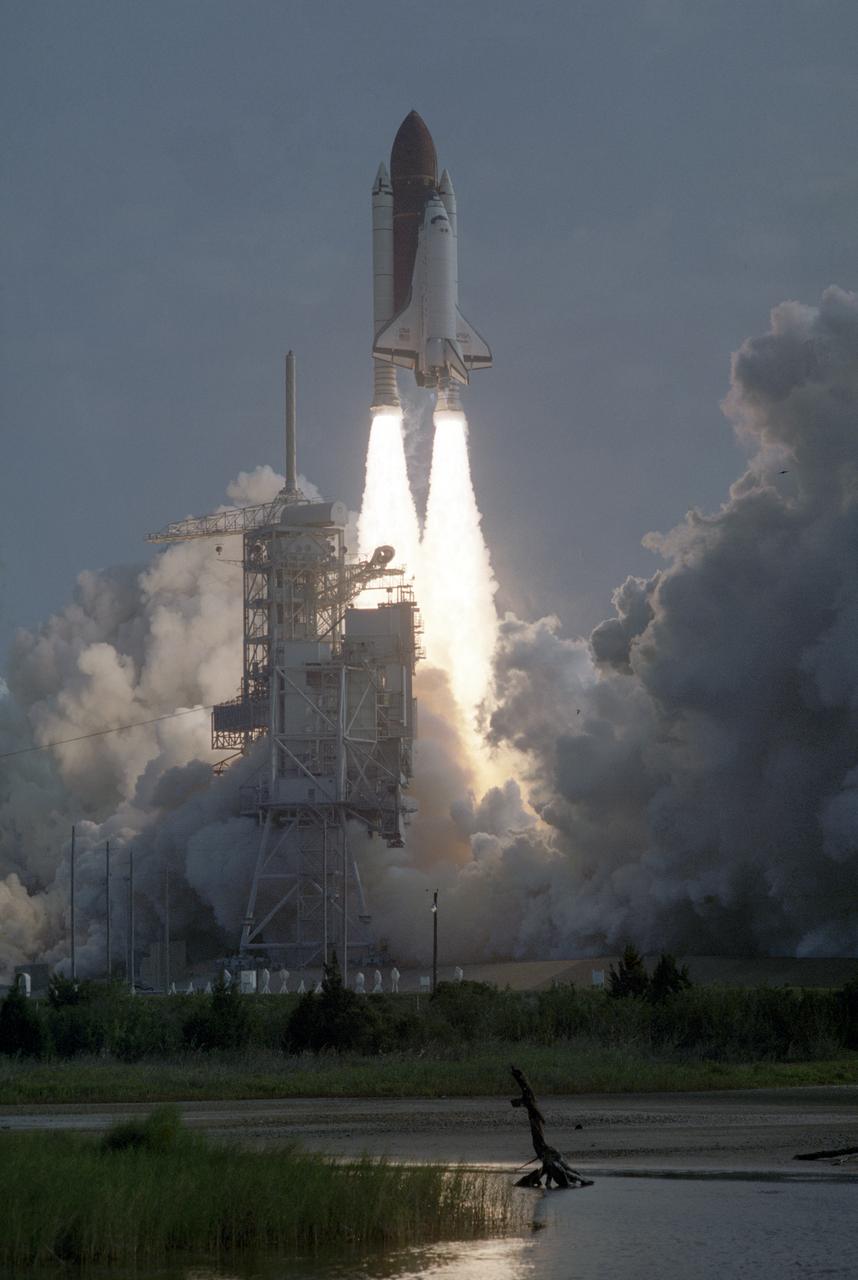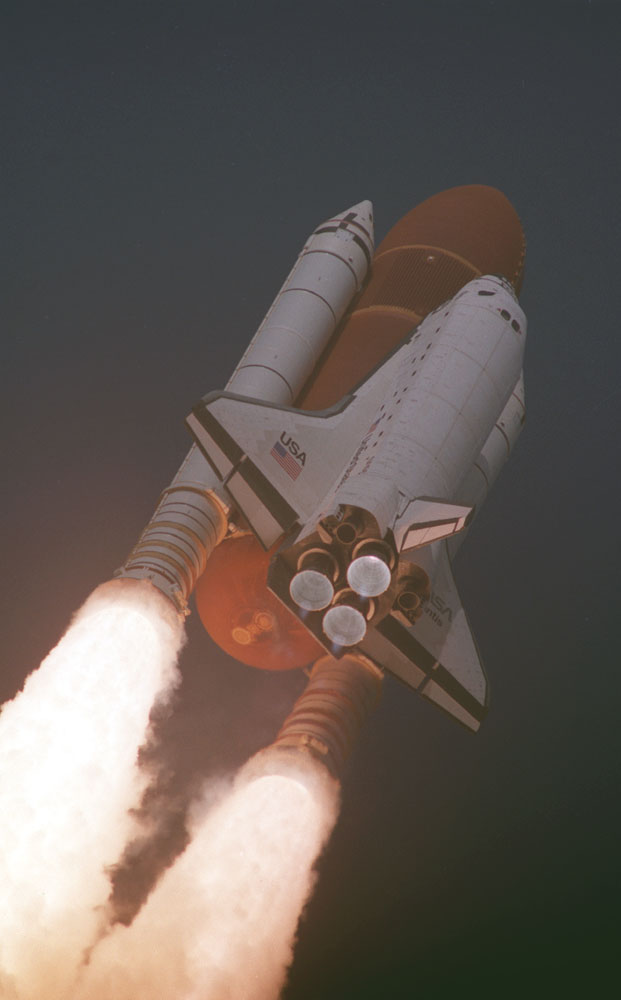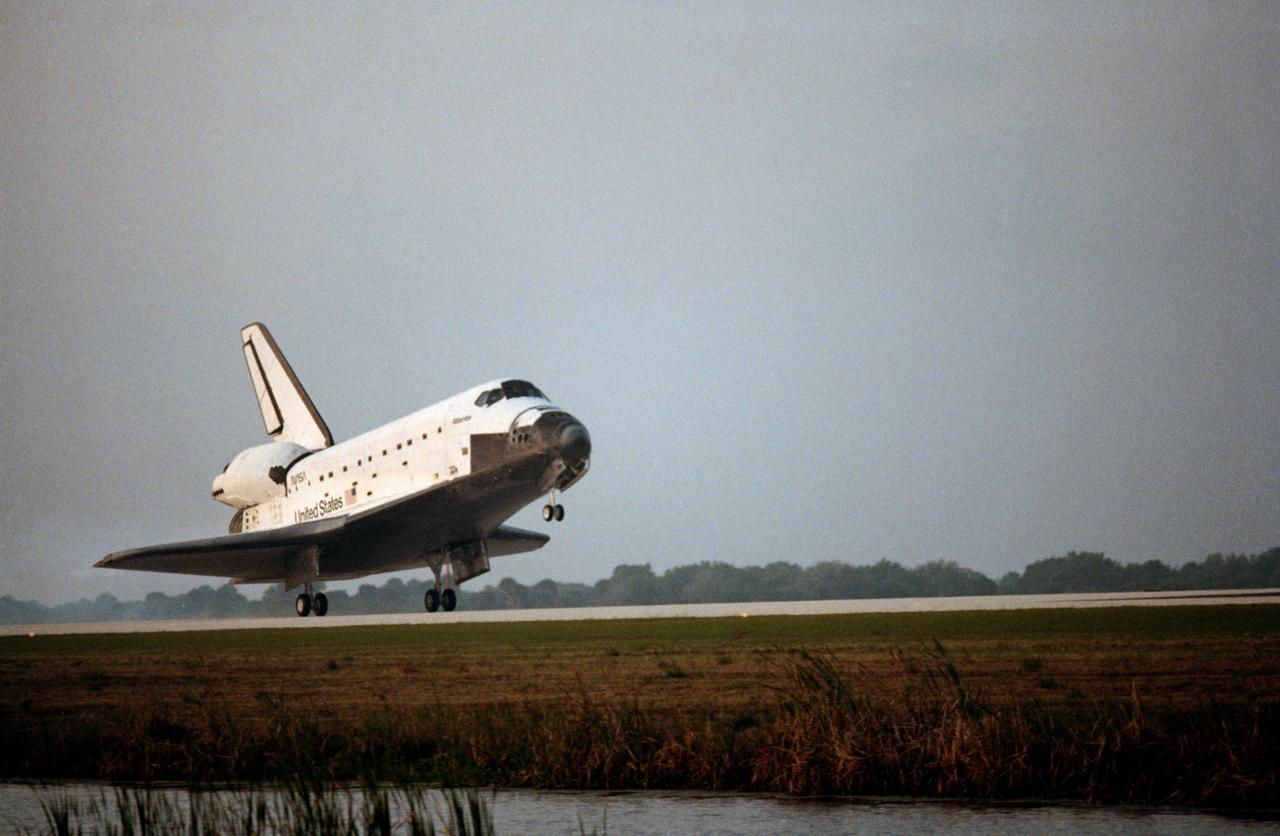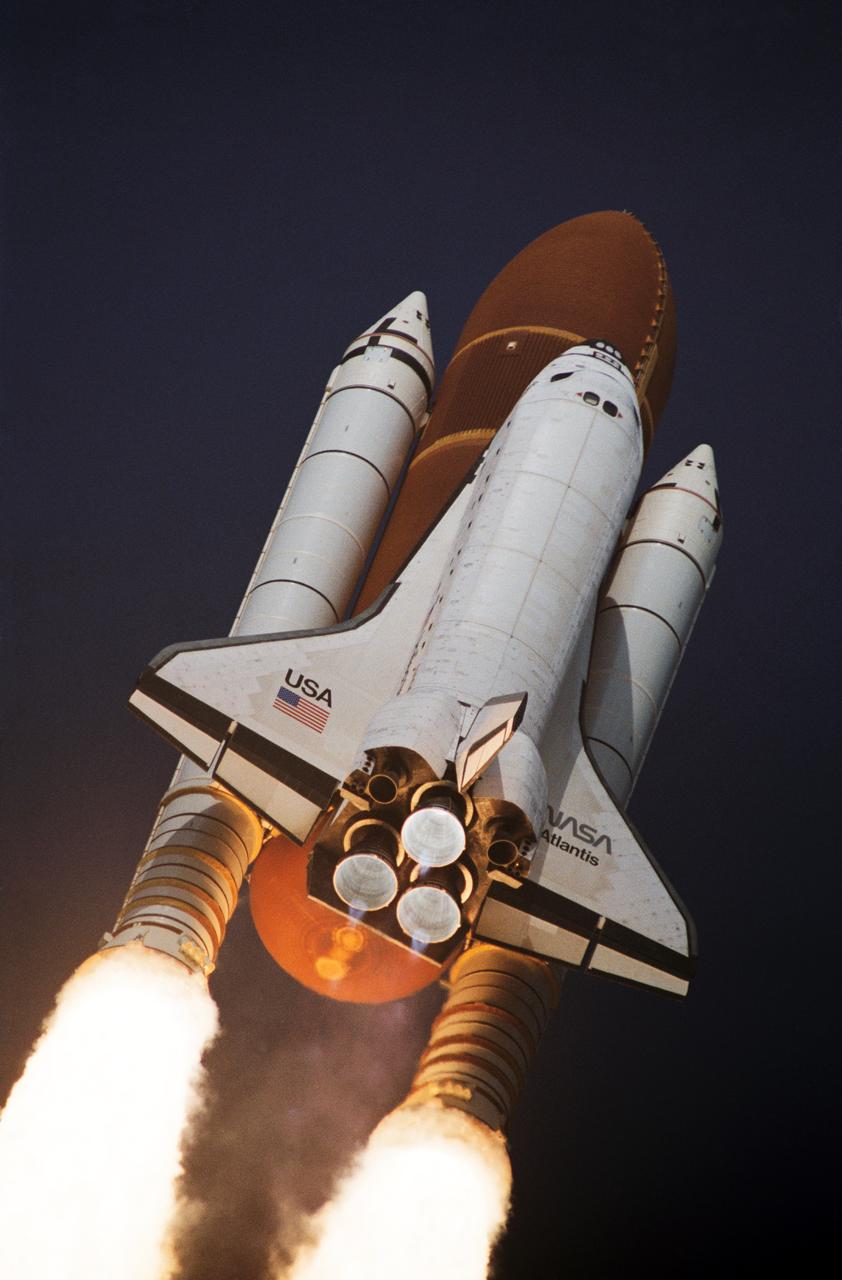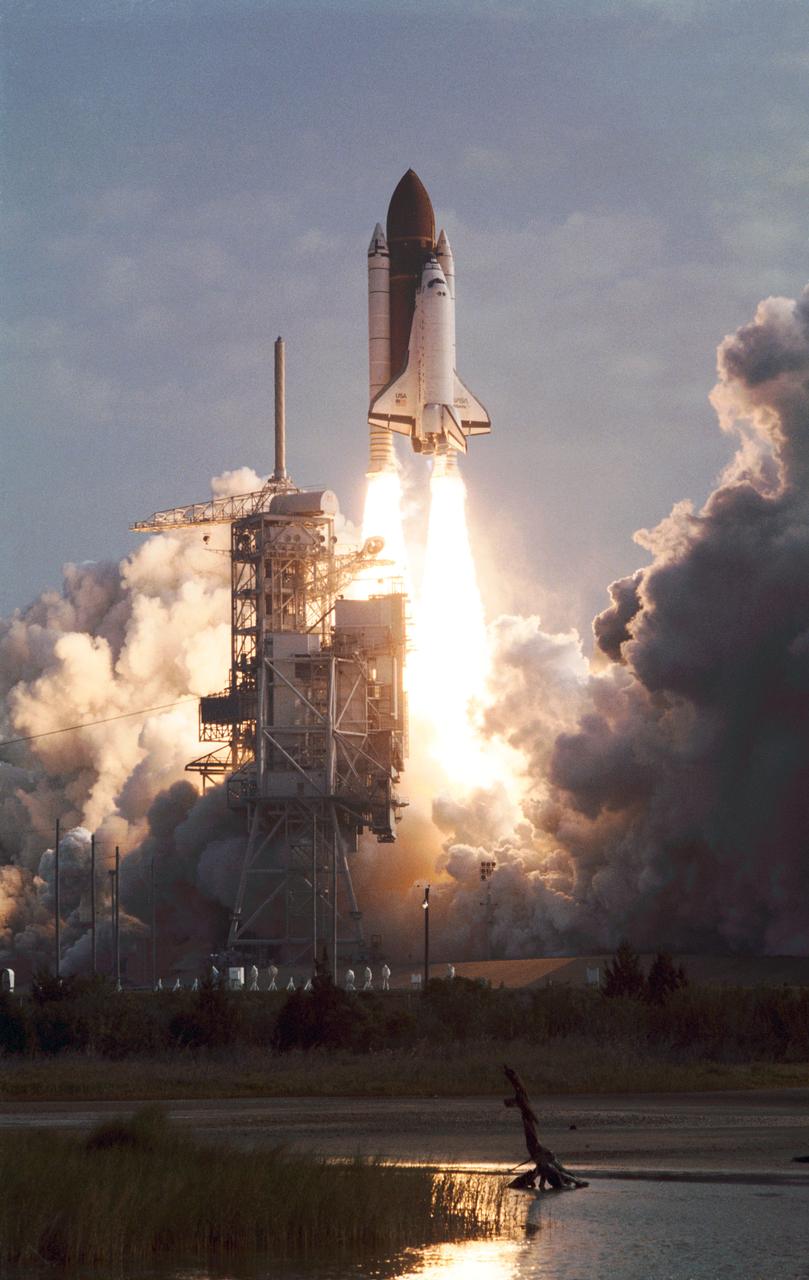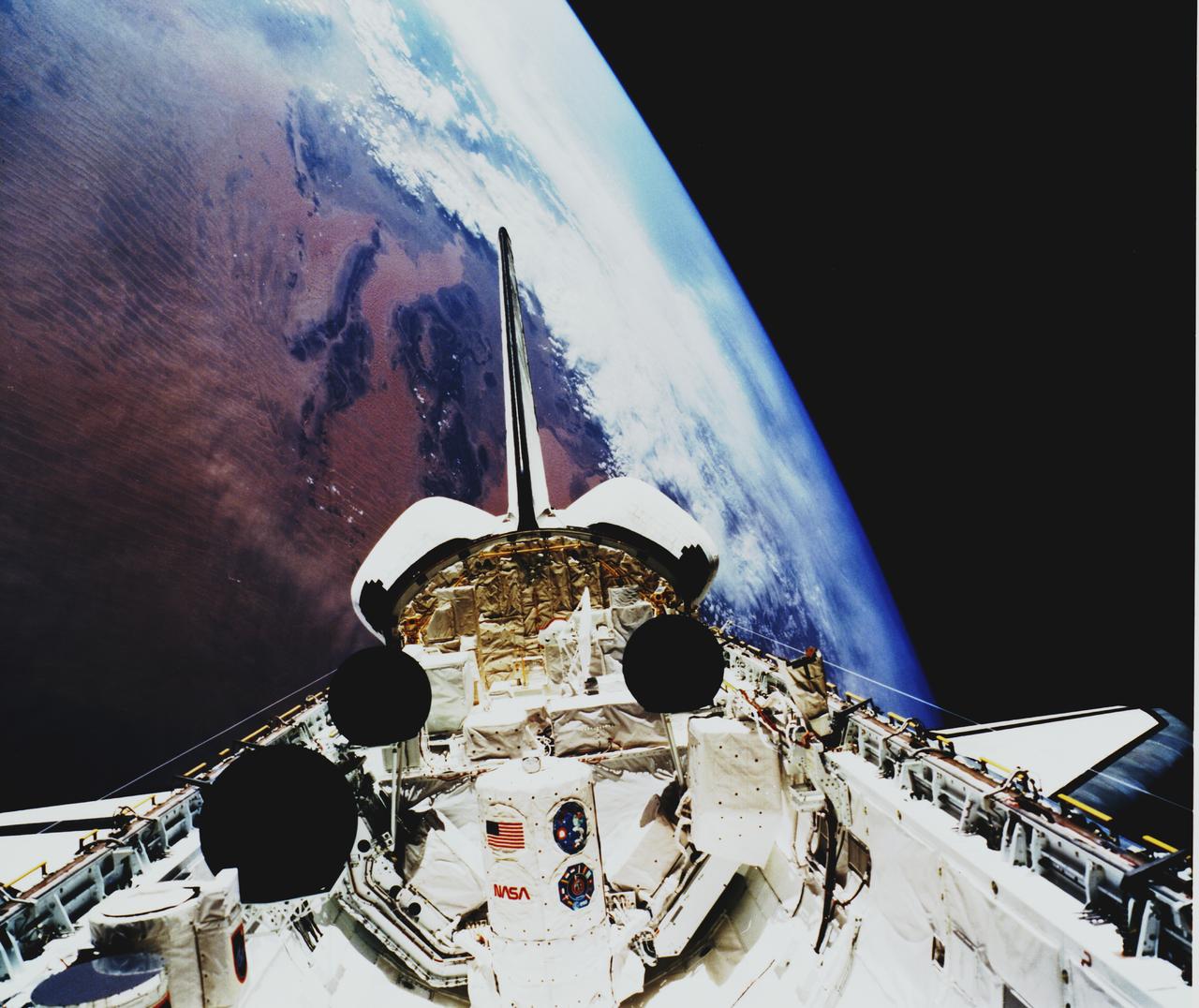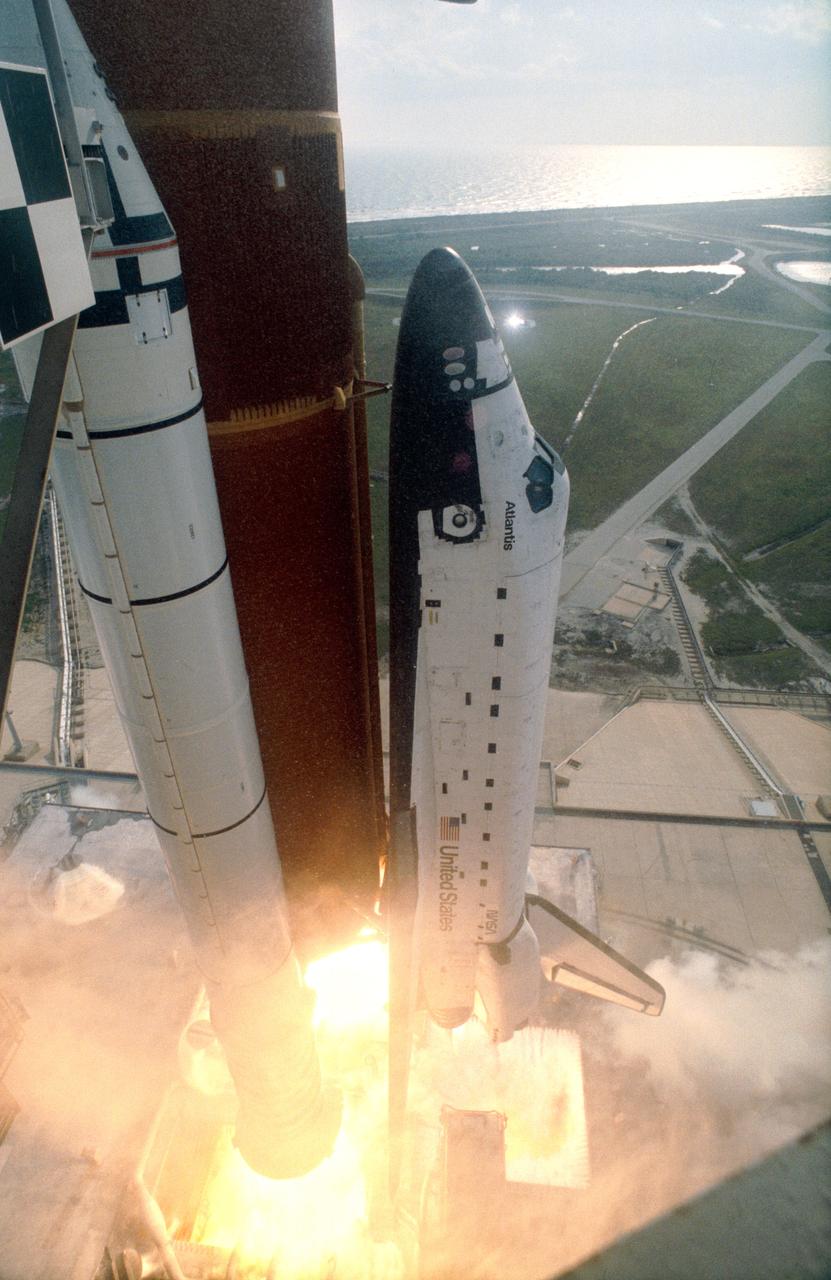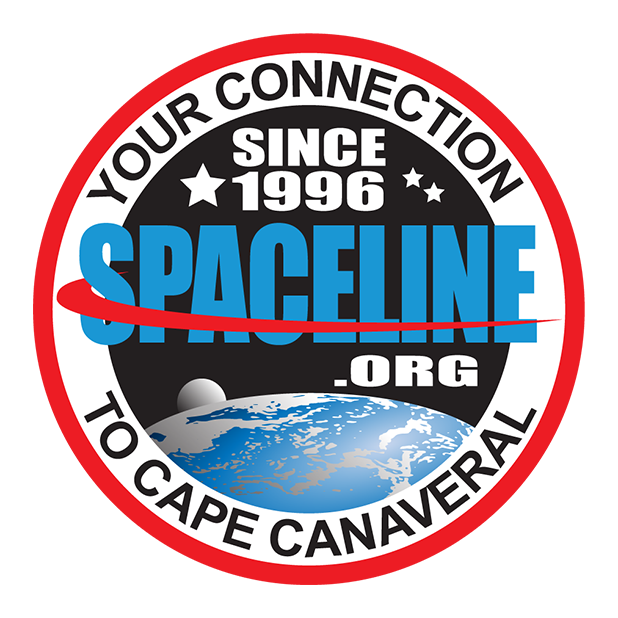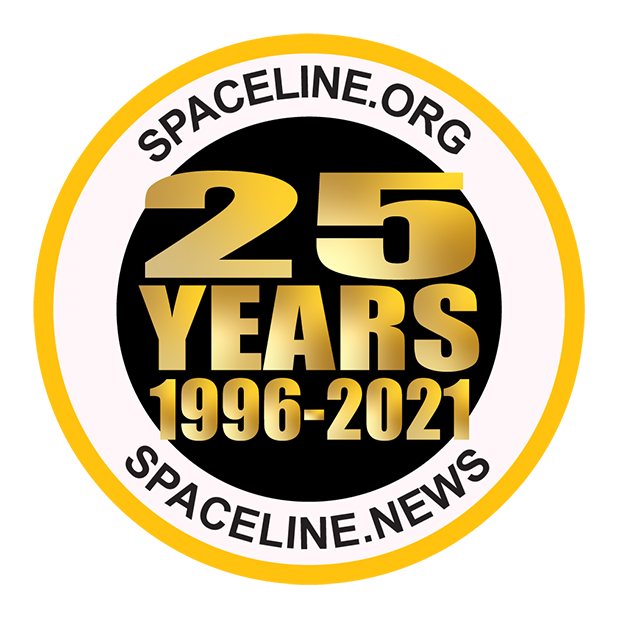STS-45 Fact Sheet
By Cliff Lethbridge
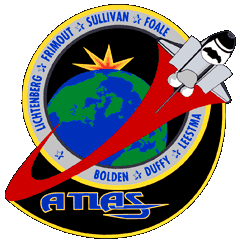
STS-45 — Atlantis
46th Space Shuttle Mission
11th Flight of Atlantis
Crew:
Charles F. Bolden, Jr., Commander
Brian Duffy, Pilot
Kathryn D. Sullivan, Payload Commander
David C. Leestma, Mission Specialist
Michael Foale, Mission Specialist
Dirk D. Frimout, Payload Specialist
Byron K. Lichtenberg, Payload Specialist
Orbiter Preparations:
Tow to Orbiter Processing Facility – December 9, 1991
Rollover to Vehicle Assembly Building – February 13, 1992
Rollout to Launch Pad 39A – February 19, 1992
Launch:
March 24, 1992 – 8:13:40 a.m. EST. Launch attempt on March 23, 1992 was scrubbed during pre-launch tanking operations when higher than allowable concentrations of liquid oxygen and liquid hydrogen were detected in the orbiter’s aft engine compartment.
No leaks were detected during follow-up tests, but careful attention was paid to assure that the orbiter’s main propulsion system plumbing was adequately thermally conditioned to handle the super cold propellants in future pre-launch operations.
March 24 launch was delayed 13 minutes due to low clouds at the Shuttle’s Kennedy Space Center emergency landing runway.
Landing:
April 2, 1992 – 6:23:08 a.m. EST at Runway 33, Kennedy Space Center. Rollout distance was 9,227 feet. Rollout time was 60 seconds. Mission duration was 8 days, 22 hours, 9 minutes, 28 seconds. Landing occurred during the 143rd orbit.
Mission Summary:
This marked the first flight of the Atmospheric Laboratory for Applications and Science-1 (ATLAS-1) payload, mounted on non-deployable Spacelab pallets in the orbiter’s cargo bay.
The United States, Germany, France, Belgium, United Kingdom, Switzerland, Netherlands and Japan provided 12 instruments designed to perform 14 investigations in atmospheric science, solar science, space plasma physics and ultraviolet astronomy.
Also flown in the cargo bay were the Shuttle Solar Backscatter Ultraviolet/A (SSBUV/A) experiment and one GAS canister. Other payloads included the Investigations Into Polymer Membrane Processing (IPMP), Space Tissue Loss-01 (STL-01), Radiation Monitoring Equipment III (RME III), Visual Function Tester-2 (VFT-2), Cloud Logic to Optimize Use of Defense System (CLOUDS) and Shuttle Amateur Radio Experiment II (SAREX II).
SELECTED NASA PHOTOS FROM STS-45
